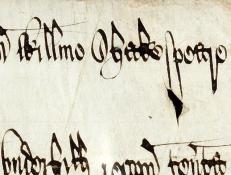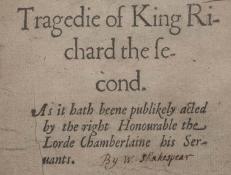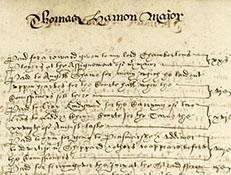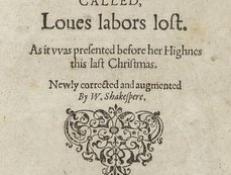To view a sortable list, please visit the Resource
All Documents
May 8, 1597
In May 1597, the freehold title to New Place passed from William Underhill to William Shakespeare. This would normally have been recorded in a formal deed of conveyance, signed by the both parties.
1597
For details about the 1597 foot of fine, see the general essay for Shakespeare's purchase of New Place. The foot has a useful endorsement (the second image) recording the occasions when the final concord was "proclaimed" in open court, as requi
August 29, 1597
Richard II was entered into Liber C of the Stationers' Company on August 29, 1597. The title as entered reads "The Tragedye of Richard the Second".
October 20, 1597
Richard III was entered into Liber C of the Stationers' Company on October 20, 1597.
May 4, 1597
For further details about the 1597 exemplification, see the general essay for Shakespeare's purchase of New Place.
January 26, 1597
On January 29, 1597 John Shakespeare sold his neighbor, George Badger, a strip of land on the north-western boundary of John’s Henley Street property (now known as the Birthplace). The conveyance shown here is in Latin.
1597
Shakespeare’s Richard II made its debut in print in 1597, approximately two years after the play’s original performance on stage.
ca. August 27, 1597
This document, part of the Rye Chamberlain’s Accounts, includes an August 1597 entry for a payment of 20 shillings to Shakespeare’s company, the Lord Chamberlain’s Men.
1598
Love’s Labor’s Lost, first edition: One of the first instances of Shakespeare's name on a title page
William Shakespeare's name first appeared on the title pages of three plays in 1598, including this edition of Love's Labor's Lost. Fourteen copies of this edition are known to survive. The sub-title, "Newly corrected and augmented By W.
October 25, 1598
This is the only known surviving letter written to Shakespeare, but he may never have received it. (No known letters survive written by him.) It is addressed “To my Loveinge good ffrend & contreymann Mr.















